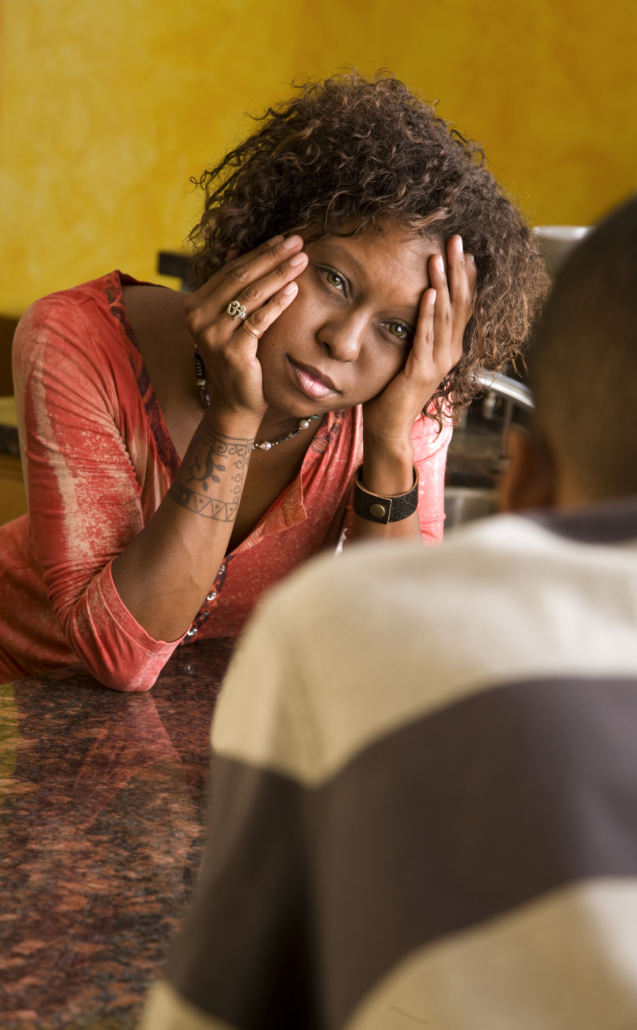By Guest Blogger: Chantel Kufeji, LMSW, Chris 180 Training Specialist/Internal ARC Trainer and Consultant
2020 was life-changing and 2021 has kept up some of its disarray, but there are bright spots to be found. Though the experiences of the Black community differ, this year, the Black community is placing greater emphasis on mental health and self-care.
Historically, cultural factors have often kept us from getting the proper help and have shaped the stigma surrounding mental health in our community. For many Black people, it can be challenging to discuss mental health or even seek out help. A significant portion of this mindset comes from family values and spirituality, which have become our overarching sources of strength and support. Many feel that their problems aren’t that big, or they have reached the point they think therapy won’t work. Instead of creating safe spaces for one another, we are taught by generations before us to ‘pray it away,’ or to “get over it.” We teach our sons that “big boys don’t cry” and our young girls that they must bear life’s burdens alone, with mental health traumas then passing from one generation to the next. These were the lessons a lot of us grew up learning and internalizing. Are the family matriarchs and patriarchs to blame or were they doing the best they knew how with the tools they were given?
According to the American Psychiatric Association, only one in three Black adults who need mental health care receive it. A portion of the problem also comes from the socioeconomic disparities people of color face, resulting in no forms of health insurance to cover their mental health struggles. Plus, there is an historical mistrust between Black people and non-Black therapists who are predominant in the field of therapy. A Black person working with a white therapist presents a whole other set of anxieties and fears. Fear that their therapist will not fully understand the black cultural or racial experiences. Fear that the therapist will further downplay or disregard these experiences as non-existent or inconsequential.
These issues, plus any negative experiences from family and friends who have sought therapy, hardens the stigma that “therapy doesn’t work” or that “therapy is for white people.” As a result, the negative view of therapy is reinforced, and many Black people simply turn to family, friends, or religious leaders for outside support. Of course, relying on our immediate circle can be a good thing for many things in life. But looking for therapy from someone seen as a safe choice does not always get the needed outcomes for someone who is struggling. Our immediate circle simply may not have the skill set to shift a mindset appropriately.
Though this last year has been anything but enjoyable, there has been a much-needed upside in the field of Black Mental Health. Black people are investing more in their own mental well-being. In a May, 2021 New York Times article, clinical and forensic psychologist Douglas E. Lewis said “he was seeing more Black people willing to seek therapy now than in the past”. And it stands to reason why. We have been inundated with videos and photos of police killings in our communities, we have witnessed much social and political unrest, and we have been uniquely affected by a pandemic mixed with historical and familial traumas. Per Lewis, these “shared traumas” have resulted in “increased anxiety and nervousness”.
No matter the reason, we are heading in the right direction for our mental and emotional health.
Now more than ever, Black people are finding community through social media. Many once overlooked initiatives are currently at the forefront. And there are several available resources that focus specifically on people of color. Therapy For Black Girls, an online movement that connects primarily black women to licensed Black mental health professionals, is one. B.E.A.M., Black Emotional, and Mental Health Collective, offers a hub of advocates, teachers, artists, lawyers, and therapists. Psychology Today also provides their own set of Black and African American Therapists. And though there is still a shortage, it is much easier to find Black mental health professionals who are working tirelessly to dismantle the negative stigma of being Black and seeking help.
Therapy isn’t just for a crisis, it’s for life. It is critical to keep in tune with your mental health just as you would with your physical health. A check-in with your mental health even when everything is seemingly fine is not only okay, but a good thing for anyone to do. Make it a priority and value yourself with enough kindness, grace, and respect to put yourself first. The rewards will be great.
It’s impossible to pour from an empty cup. Take care of yourself before you attempt to care for others. I know we live in a world where everyone we encounter requires a different version of ourselves, but each of us must take time to rejuvenate, recharge and reflect. In my training, I always stress to “put your oxygen mask on first”.
So, as we celebrate Black Mental Health Month, we also celebrate the increase in people of color recognizing their traumas and seeking help to address those traumas. We celebrate how far we have come. We celebrate our resilience, but we also celebrate our future that can be healthier and better for generations to come.






